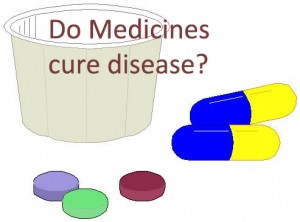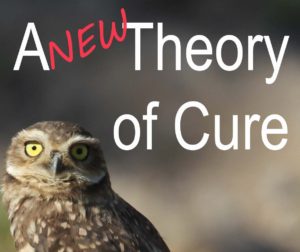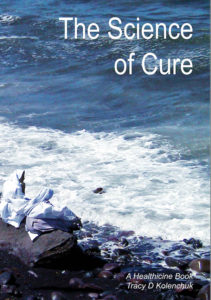 why do we take drugs? Recreational drugs, medical drugs and illegal drugs are all drugs for the same reason. We used to take drugs because the witch doctors said they had magical effects. Not much has changed.
why do we take drugs? Recreational drugs, medical drugs and illegal drugs are all drugs for the same reason. We used to take drugs because the witch doctors said they had magical effects. Not much has changed.
We take drugs because we believe it is not worthwhile to search for the cause of our illness, or if we know the cause, – because we believe that tackling the cause will not be effective. Sometimes, we’re right – but often not.
We take drugs in the mistaken belief that we have an illness, or a ‘health problem’ that they can fix. Mistaken, due to a misunderstanding of the causes of illness and the functions of drugs.
A simple or primary illness is an illness that has a single cause. That seems almost trivial, but it’s worth remembering. All causes of a primary illness are a deficiency, or an excess, of some health factor.
A deficiency of calories results in malnutrition. A deficiency of Vitamin C results in scurvy. A deficiency sunshine results in a deficiency of Vitamin D which results in rickets. You can, however get Vitamin D in your diet to compensate for a deficiency of sunshine. A deficiency of healthy stress can lead to lethargy and an unhealthy spirit. There are NO drugs that can cure a nutritional deficiency – because if it can be deficient, it’s a nutrient, not a drug.
An excess of calories results in obesity. Consuming an excess of Vitamin C might cause an upset stomach and diarrhea. An excess of many nutrients is toxic, especially the common micro-nutrients like iron and copper. An excess of physical stress can cause a broken leg, or a damaged mind or spirit.
A primary unhealthiness is the name we use for a single deficiency, or a single excess.
When a primary unhealthiness exists, initially, it does not cause illness. It might be a minor deficiency or excess – and your body adjusts. Or it might be for a short period of time – not long enough to have a noticeable effect.
Ultimately, a primary illness results from a primary unhealthiness, and in each case of a primary illness, there is a simple cure (if no further damage has occurred) – remove the cause. If the cause is a deficiency, get more; if the cause is an excess, eliminate or cut back.
Therefore, in the case of a primary illness – a DRUG is the WRONG ANSWER. There are exceptions. An excess of harmful bacteria might best be treated by an antibiotic.
What happens if you take a drug for a primary illness?
Let’s suppose you are suffering from a deficiency: of calories, of a Vitamin, of iron or copper and you take a drug. The drug is typically prescribed based on the symptoms – not based on the cause of the illness. The illness makes you feel bad. The drug is designed to make you ‘feel better’. You will get a similar result from ‘prescription drugs’ or ‘illegal drugs’ – you will feel better for a while. What happens to your illness? The behavior that made you ill ‘feels fine’ – so you continue with that behavior. Your illness gets worse. You try a different drug, or maybe a ‘stronger drug’. And the illness continues to grow.
Or, if you are suffering from an excess: of toxins, of nutrients, of stress, and you take a drug. Again, drugs are prescribed, for the most part, based on symptoms. The drug helps you feel better. You feel fine, so you continue the behavior that causes the illness. The illness gets worse. You try a different drug, and the illness continues to grow. In this case, the drug might actually make things worse as well. For example, many toxins are processed by your liver. And your liver also recognizes most drugs as a toxins. You may have noticed – if you are in to reading fine print, that many drugs list hepatotoxicity (liver toxicity) as a side effect. When you combine an illness caused by toxins (like excessive alcohol), with a toxic drug (all drugs are toxic by definition), a common result is liver damage.
We used to get our drugs from the witch doctor, is if they were magic. We still often try drugs for their magical effects, but we are beginning to recognize them as side effects. All drugs work via ‘side effects’ – effects that are not related to the disease. A deficiency of the drug is never the cause of an illness. This explains why all drugs have ‘side effects’. Because they are designed to work ‘sideways’. Note: people who design and market drugs pretend that ‘side effects’ are effects that were not intended – but in fact all drug effects are side effects, unless they address the cause of the illness.
Surely if you have a primary illness, your doctor identifies it right away, and tells you instead of giving you a drug? Doesn’t that make the most sense?
How many primary unhealthinesses are there? How many lead to primary illnesses? No-one knows.
Scientists have identified over 100 nutrients that are essential to health. In theory, any one of them might be deficient, resulting in different illnesses. When we consider toxins, it’s much more complicated. Every chemical is a potential toxin – even the essential nutrients. Every chemical is a potential ‘illness’ if encountered or consumed in excess.
There are many other factors that contribute to health, but cause illness in excess. Physical and mental exercise is essential to health – and both can cause illness in excess.
There are so many possible primary illnesses that it is not possible to enumerate them all. Many new chemicals are invented every year. New viruses and bacteria evolve every year.
When we look at the Hierarchy of Healthicine we see that, at each layer in the hierarchy, there are many possible deficiencies or excesses, many possible primary illnesses. You might be deficient in a single cell type in your pancreas – diabetes, or deficient in a gene that generates healthy blood cells, the list goes on and on.
It gets more complicated, much more complicated.
A compound or complex illness is an illness that is the result of MORE THAN ONE UNHEALTHINESS.
For example, if you are deficient of Vitamin C, and Deficient of Vitamin D, and suffering an excess of Iron and an excess of stress – you are suffering from a compound illness. There are different types of compound illness. If you are experiencing most ‘single unhealthinesses , your body can compensate and re-balance, especially if it is only for a short period of time. But if you are experiencing two at the same time, there may be a link that blocks the balancing process. Two minor unhealthinesses might have a much larger effect than a single, larger, unhealthiness. We can’t enumerate all of the primary unhealthinesses – and it is more impossible (is it possible to be more impossible?) to enumerate all of the possible ‘compound illnesses created by two unhealthinesses’.
Of course the complexity of illness does not stop there. It is not difficult to imagine, or theoretically create an illness that is caused by 5 deficiencies and 7 excesses. And so on. But it is very, very difficult to identify the cause of such an illness, or even to verify that those 12 unhealthinesses cause a unique illness. Unfortunately, this illness does not have a name. There are names for many primary illnesses. Most other illnesses are named and categorized by their symptoms. If you have migraines, or high blood pressure, or heart disease or cancer – doctors don’t usually look for the cause- unless it is fairly obvious, they look to the treatment, a drug.
There are many illnesses that do not have clearly identified causes. There are obvious illnesses like Crohn’s disease, Alzheimer’s disease and fibromyalgia where we don’t know the cause. But look further.
What is the cause of cancer? What is the cause of lung cancer? We don’t know – but we believe cancer is a complex illness. We actually know that lung cancer is ‘a large collection of complex illnesses’. Cancers are not named by the cause. If want to learn the different types of lung cancer, you will find they are distinguished by the ‘part of the lung’ they invade, or by the way they grow. It would make sense to distinguish different illnesses by the cause – but diseases like cancer seem to happen years after the cause, or perhaps after years of continued cause. So we can’t clearly identify the cause. Treatments of cancer don’t depend on the cause – they depend on the location, and the type of growth – because it is too late to tackle the cause. All the talk about ‘early detection’ of cancer is directed at ‘early treatment’, not ‘early identification of the cause’.
If you have a complex illness, a result of multiple causes, the only chance you have of actually addressing it is if you can identify the most important cause or the ‘key cause’. Or by random chance – which does happen. When we get sick, we often make changes in our diet, our lifestyle, our relationships, our communities, our spirit. In some cases, this works. Your body is remarkably good at adjusting to many primary deficiencies and excesses. Even if you are missing an arm, you might not die – and might live a healthy, productive life. If your diet is deficient in many nutrients, and excessive in many others, you body will attempt to adjust and re-balance. You will only notice the illness when the combination of deficiencies and excesses is more than your body can handle by itself.
So, in simplest language: If you have an illness, or a collection of symptoms (note: many symptoms can be symptoms of healing or healthiness that we don’t recognize), you might look for a drug to help you out. Because your chances of finding the cause are slim.
Or, perhaps you have an illness, and you know the cause. But change is difficult. Again, a drug can help.
That’s why we take drugs. That’s how drugs are designed. It’s how they’re marketed. To avoid searching for the cause of an illness, or to avoid dealing with the cause of an illness.
Are there some cases where a drug is the best solution? Yes. A drug is the best solution in some cases.
If the cause has progressed to the point where removing the cause is not a valid treatment. If you are ‘stressed’ by a bullet through your body – there is not much point in trying to address the cause (at least not right now). Get some pain relief. Maybe some antibiotics and some attention from a surgeon. Drugs it is.
If the likelihood that you will find the cause is low, or time consuming – a drug can ‘hold you over’ while you search for the cause.
There are other reasons. But in many cases a doctor prescribes a drug to save time. The doctor’s time, or the patient’s time. Or a drug might be prescribed (or requested) out of resignation, or unwillingness to look for the cause of the illness. “Give me the drug, the quick fix” – and maybe the body will have time to recover on it’s own. But, of course, recovery is dependent on the cause.
Why do we take drugs? We take drugs because we believe, in specific cases, that it is not worthwhile to look for the cause of the illness. Doctors prescribe drugs when they believe it is not worthwhile to address the cause of the illness.
Why don’t they work? Drugs do not address the cause of the illness. No one is suffering from a deficiency of a drug. Drugs always have ‘side effects’, They work by pushing the illness sideways, not attempting to actually cure it. I recently surveyed the top 20 selling drugs – and found only one that actually cures the disease it is prescribed to treat. The other 19 treat symptoms, not cause. And why not? If you treat the symptoms – but not the cause, you will sell more drugs. The cause remains. We don’t need a conspiracy theory to explain the fact that the drugs that sell the most are those that don’t actually cure. Drugs that cure ‘work themselves out of business’.
Next time you think about a drug, take a moment or maybe more – and try to find the cause of your illness. If you can find the cause you can free yourself of the drug, if not, you will remain chained to it, to your prescription and to your symptoms.
Everyone has a right to life, liberty, and the pursuit of healthiness. Make your decision to pursue health and healing, not to pursue drugs.
tracy


